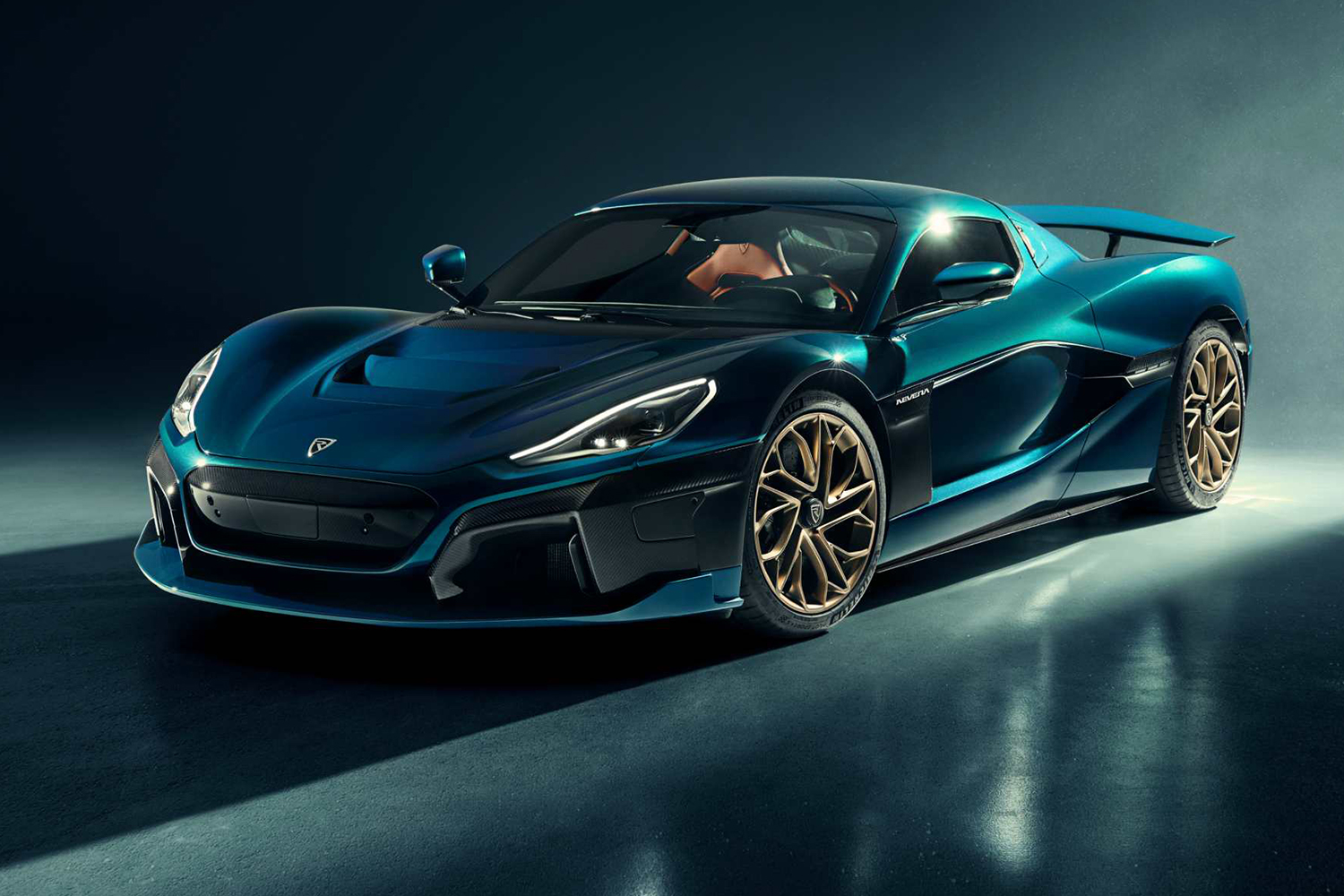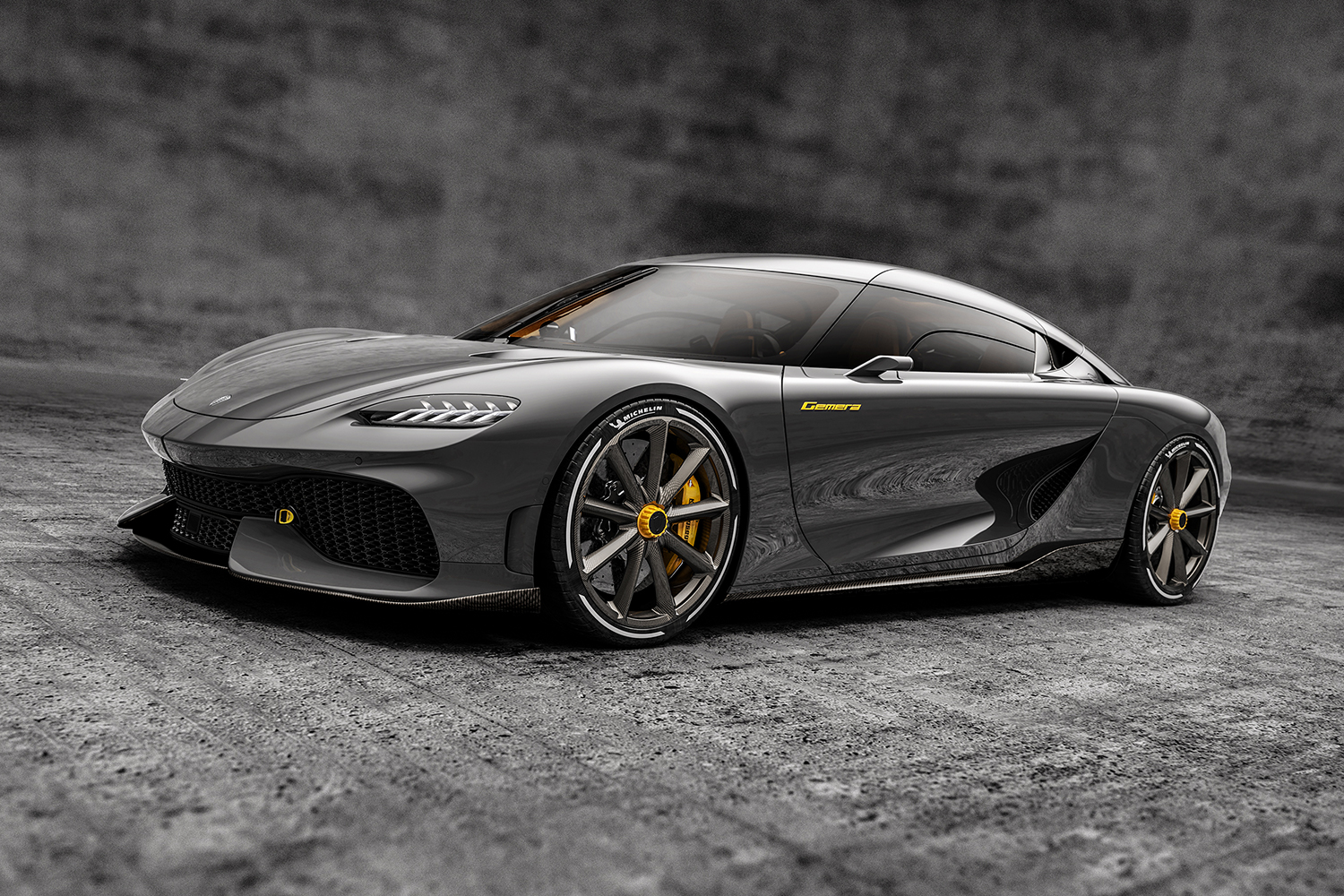What do you get when you combine a historic French supercar maker, a leader in German automotive engineering and a Croatian electric-vehicle rookie? That’s not the start of a Car Talk bit, that’s the very real question being considered among the auto industry now that Rimac Automobili, an EV upstart not even in its teens, has purchased a controlling stake in the 112-year-old Bugatti.
The news, announced on Monday, has been rumored for months. As The New York Times noted, Bugatti has had a hard time turning a profit, even though it sells multi-million-dollar supercars. As such, Volkswagen Group, which bought and revived the bankrupt brand in 1998, has been seeking a way to offload the responsibility on someone else. It’s not abdicating all claim on the automaker, though; in the new joint venture with Rimac, the Croatian company will hold a 55% stake while Porsche, a subsidiary of Volkswagen, will hold a 45% stake.
The new company will be called Bugatti Rimac. As a press release made clear, “Bugatti and Rimac will both continue as separate respective brands,” but it also acknowledged that the two companies will be “joining resources and expertise in research and development, production, and other areas.” While the idea of a young electric car maker born well into the 21st century — exactly 100 years after Bugatti — calling the shots at a marque known for producing classics throughout the 20th century (from the Type 57SC Atlantic of the ‘30s to the EB110 of the ‘90s) may give some automotive enthusiasts pause, what we have here is a Three Musketeers situation: the old timers of Bugatti, Porsche and VW will be made better thanks to an injection of Rimac’s youthful audacity.
That devil-may-care attitude can be summed up by the Nevera, a $2.4 million electric hypercar that Rimac officially unveiled last month. Originally called the C_Two when in concept form, the limited-production Nevera promises numbers belied by its lack of name recognition, including a top speed of 258 mph as well as a 0 to 60 mph time of 1.85 seconds. That acceleration would handily beat Tesla and, as The Verge pointed out, the previous record-holding Bugatti. Pair that electric vehicle knowhow with the French brand that just recently released its own hypercar, the Chiron Super Sport, that puts out 1,600 horsepower and tops out at 273 mph, and we could soon be looking at a new titan in the overpowered sports car space.

However, the most important thing to know about Rimac, which was founded in 2009 by Mate Rimac, is not its headline-making car for the one-percent. Instead, it’s that the company has quietly become an essential supplier to household names, providing innovative automotive components to brands like Porsche, Hyundai and Bugatti, as noted by The Verge.
“This is a truly exciting moment in the short, yet rapidly expanding history of Rimac Automobili,” said Mate Rimac, who is also the company’s CEO. “We have gone through so much in such a short space of time, but this new venture takes things to a completely new level. Rimac and Bugatti are a perfect match in terms of what we each bring to the table. As a young, agile and fast-paced automotive and technology company, we have established ourselves as an industry pioneer in electric technologies.”
Those technologies, which are being leveraged by automakers beyond the scope of those Three Musketeers, will be housed under a separate company, Rimac Technology.
In the immediate future, you can expect Bugatti to keep on trucking with its 16-cylinder gas guzzlers and Rimac to begin dominating the high-end EV space. After that, we’ll begin to see hybrid Bugattis and even a fully electric model by the end of the decade.
But more immediately — thanks to a $236.5 million Rimac campus currently under construction in its home country with an opening date set for 2023, which will house both Rimac Technology and Bugatti Rimac — Croatia may just become a new automotive epicenter.
Watch out, German engineering; Croatian engineering is coming for your tagline.
This article was featured in the InsideHook newsletter. Sign up now.

















